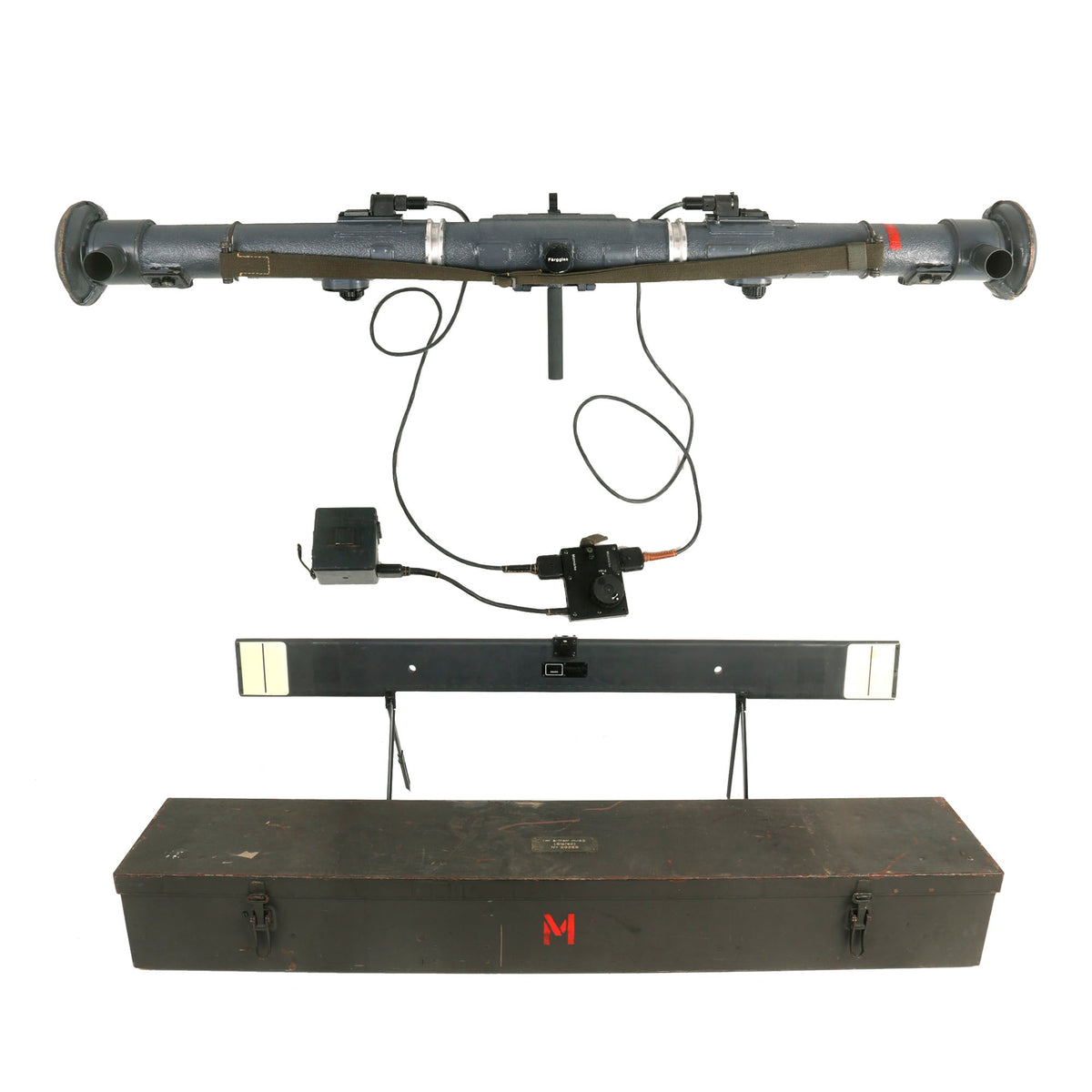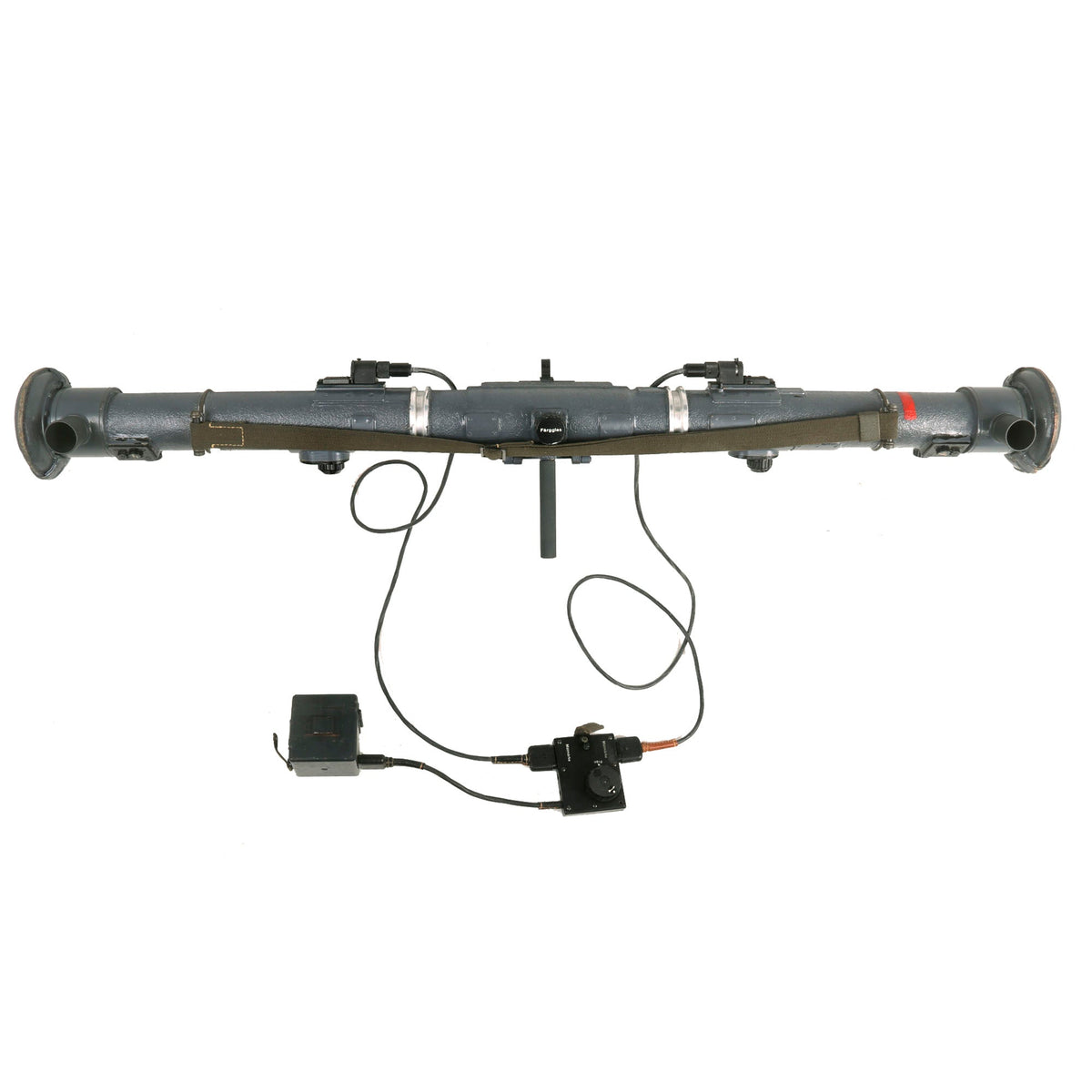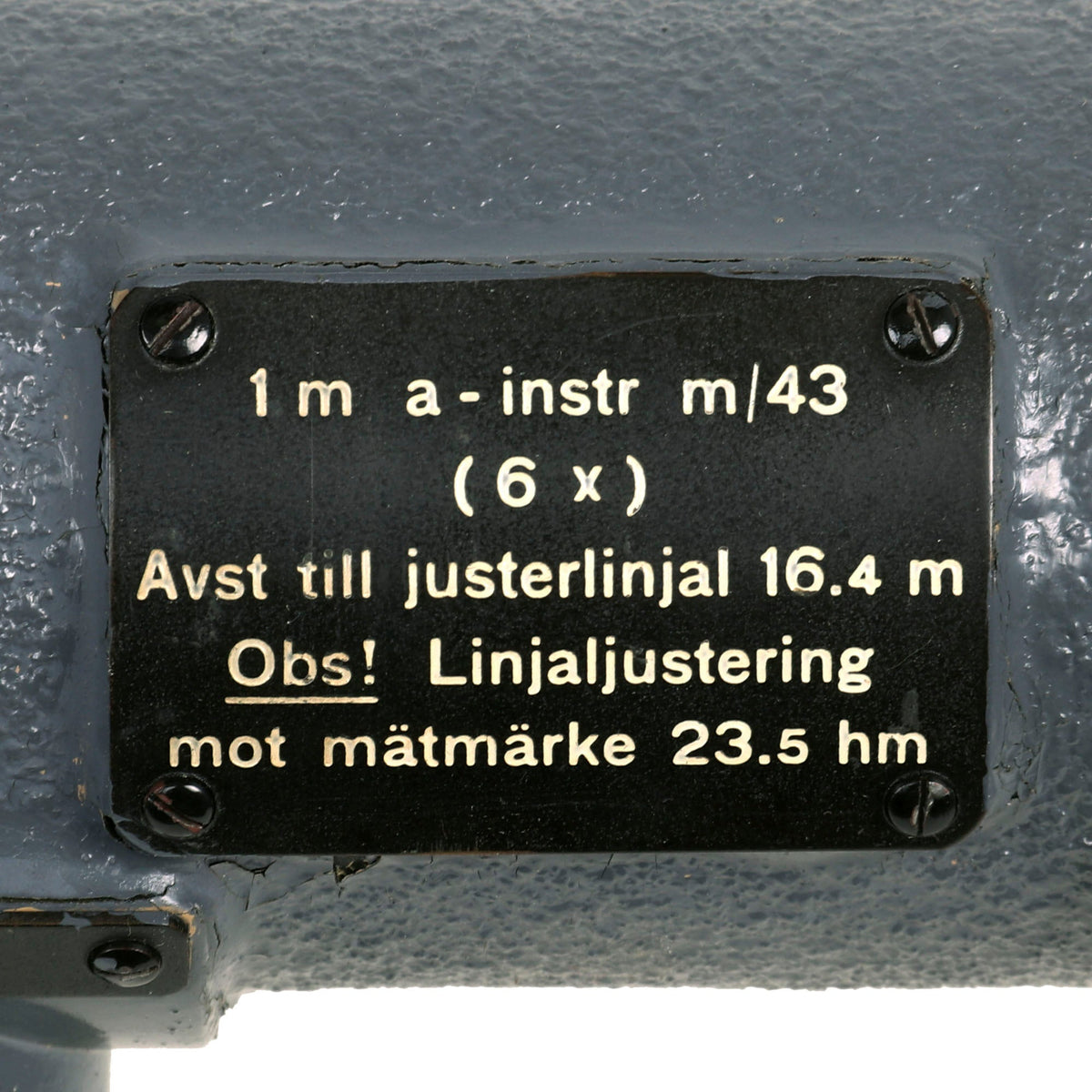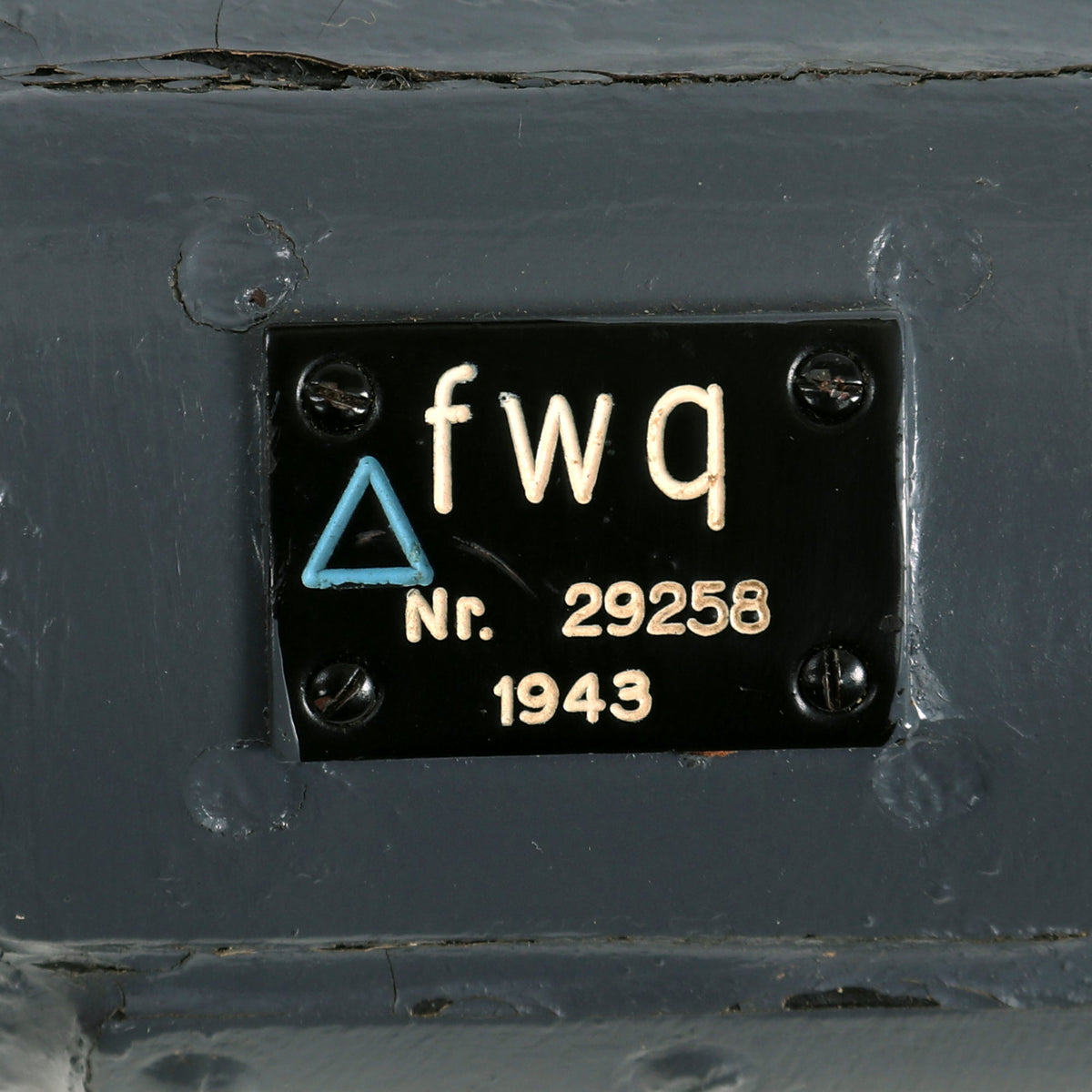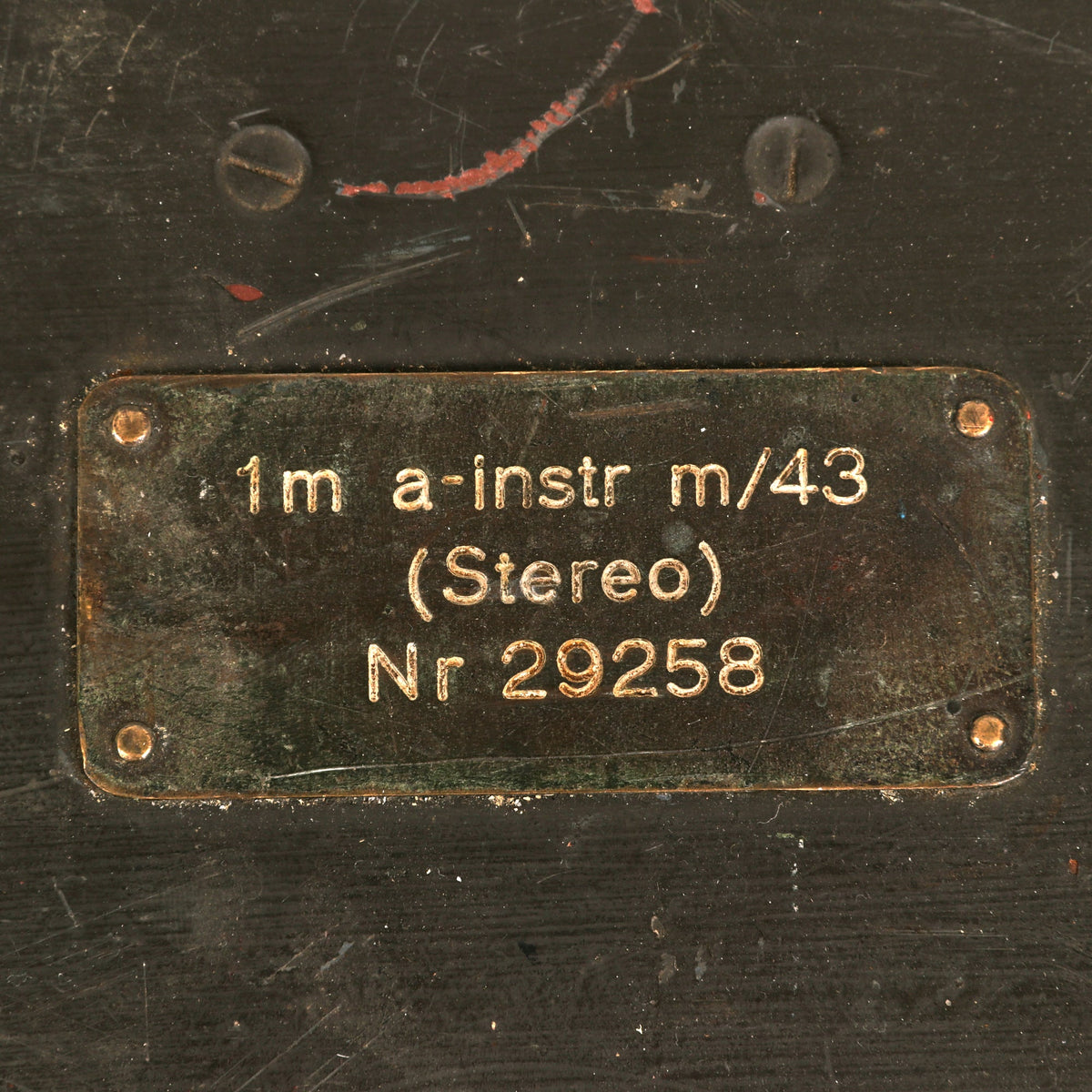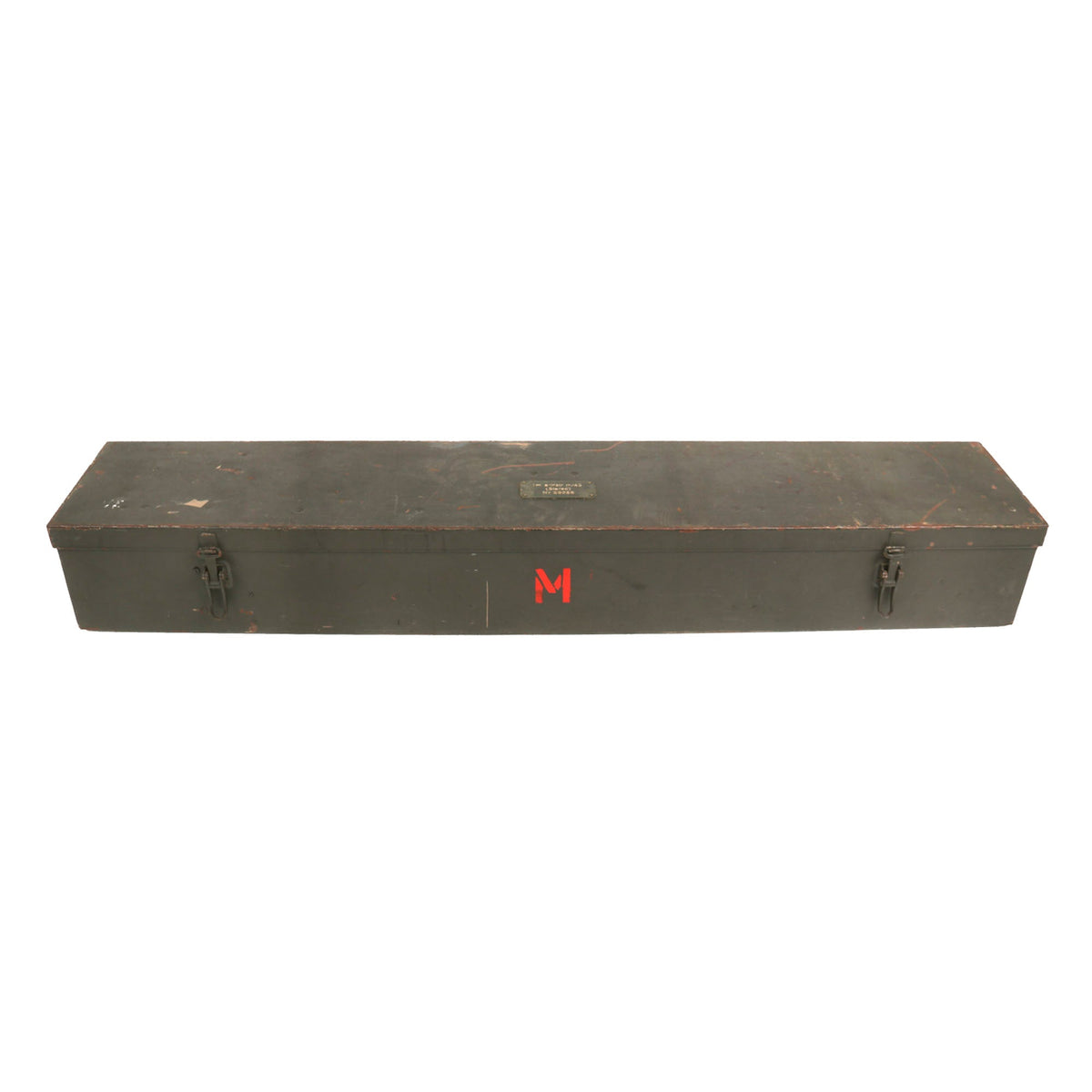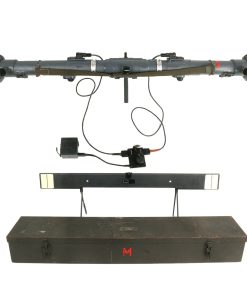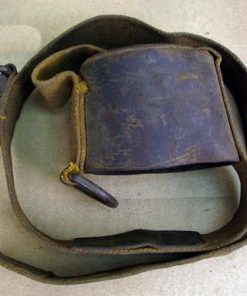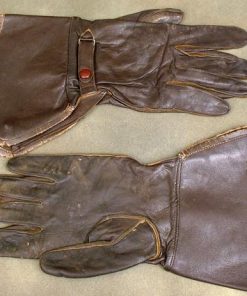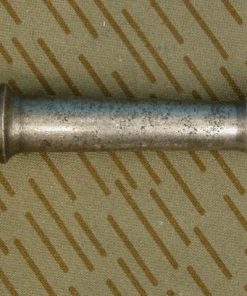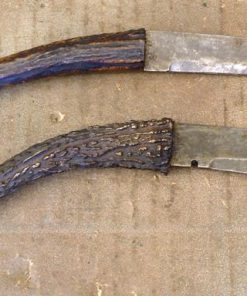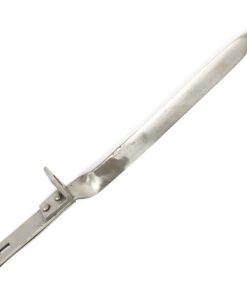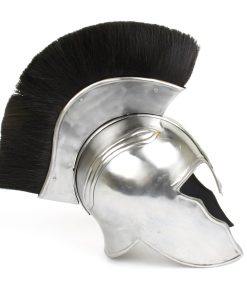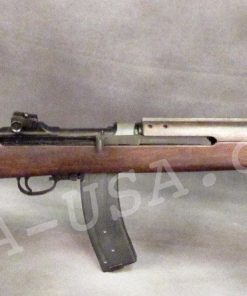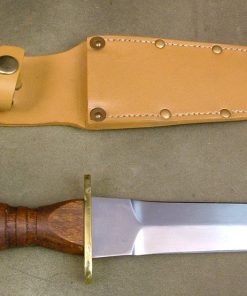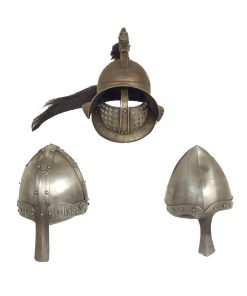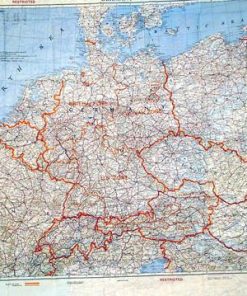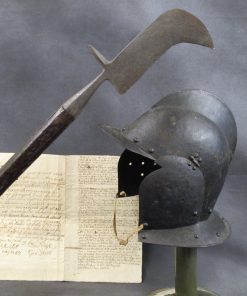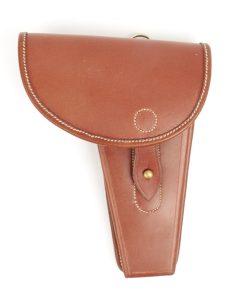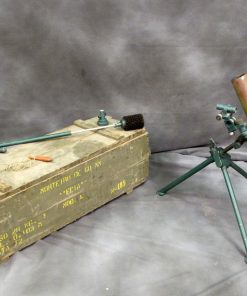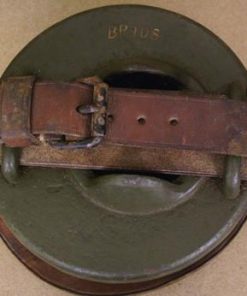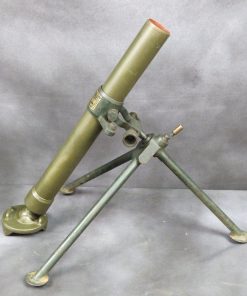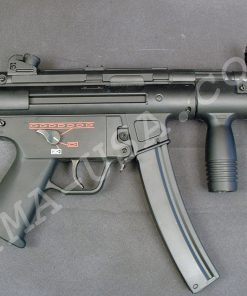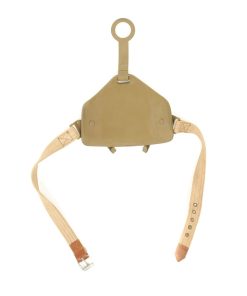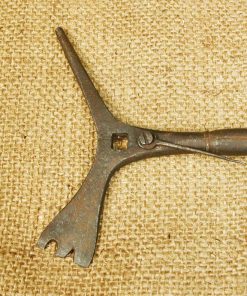Original German WWII 1943 Dated Swedish M/43 6× Em 1m R36 Stereoscopic Rangefinder by Saalfelder Apparatebau in Transit Chest Original Items
$ 1.995,00 $ 498,75
Original Items: Only One Set Available. This is an excellent example of a German WWII Entfernungsmesser 1-meter Raumbild 36 (1936) or “Em 1m R36” rangefinder, complete in its original transit chest. This model was one of the most widely used optical rangefinders in the German Wehrmacht during WWII. In the words of one German source, “A light rangefinder for all branches of the service, especially suitable for moving targets on the ground and in the air”. The markings on the rangefinder and chest indicate that it was made for Sweden as their M/43 rangefinder, and all of the data plates on the rangefinder itself are in Swedish.
This lovely rangefinder comes with some of the original issue accessories in its original transit chest, which measures approximately 47″ x 9″ x 6″. It still retains the original German maker information on the left data plate:
fwq
Nr. 29258
1943
This indicates 1943 production by Saalfelder Apparatebau GmbH in Saalfeld, Germany, not far from Jena, where many optics companies were based. They are a known maker of German WWII optics, and other examples have been seen of their equipment. There is a blue triangle on the left side of the plate, indicating the type of lubricant to be used. The “fwq” marking is present on the rubber eyepiece as well. The other data plates are all in Swedish, and indicate that the rangefinder is a 1m a – instr m/43 ( 6 × ), which is also listed on the serial number matched crate:
1m a-instr m/43
(Stereo)
Nr. 29258
The rangefinder is in wonderful condition, with the original blue paint very well retained, as well as the original pads on the end. All of the adjustments seem to be functional, however we have no way to test the optics to see if they are still accurate. The optics are somewhat clear, though it most likely needs a cleaning and servicing.
Equipment included in the transit chest includes, in addition to the rangefinder itself, a 1-meter calibrating slat with built-in dual bipod legs and rain protection / sun shield tubes for the objective lenses. There are also some electronic components included, which look to be a battery compartment and brightness control. None of the manuals are included, probably removed long ago, however the chest is definitely in great shape, and does not appear to be missing any of the wood inserts. There is even the knurled post for holding it by hand. There are compartments for extra bulbs and other components, however none of these are included.
A wonderful example and comes more than ready for further research and display.
A stereoscopic rangefinder or stereoscopic telemeter is an optical device that measures distance from the observer to a target, using the observer’s capability of binocular vision. It looks similar to a coincidence rangefinder, which uses different principles and has only one eyepiece. German instruments tended to use the stereoscopic principle while British ones used coincidence.
A stereoscopic rangefinder uses two eyepieces and relies on the operator’s visual cortex to merge the two images into a single picture. A reference mark is separately inserted into each eyepiece. The operator first adjusts the direction of the range finder so that the fixed mark is centered on the target, and then the prisms are rotated until the mark appears to overlap in the operator’s combined view. The range to the target is proportional to the degree of rotation of the prisms.
Fast Shipping with Professional Packaging
Thanks to our longstanding association with UPS FedEx DHL, and other major international carriers, we are able to provide a range of shipping options. Our warehouse staff is expertly trained and will wrap your products according to our exact and precise specifications. Prior to shipping, your goods will be thoroughly examined and securely secured. We ship to thousands clients each day across multiple countries. This shows how we're dedicated to be the largest retailer on the internet. Warehouses and distribution centres can be located throughout Europe as well as the USA.
Note: Orders with more than one item will be assigned a processing date depending on the item.
Before shipping before shipping, we'll conduct a thorough inspection of the items you have ordered. Today, the majority of orders will be delivered within 48 hours. The delivery time will be between 3-7 days.
Returns
The stock is dynamic and we cannot completely manage it because multiple stakeholders are involved, including our factory and warehouse. So the actual stock may alter at any time. It's possible that you may not receive your order once the order has been made.
Our policy is valid for a period of 30 days. If you don't receive the product within 30 days, we are not able to issue a refund or an exchange.
You can only return an item if it is unused and in the same state as the day you received it. You must have the item in its original packaging.
Related products
Uncategorized
Uncategorized
Uncategorized
Uncategorized
Australian WWII Owen MK1 Machine Carbine SMG Custom Fabricated Replica with Sling Original Items
Uncategorized
Angolan Rebel 1970s era 60mm Inert Display Mortar from Angolan Civil War Original Items
Uncategorized
Uncategorized
Uncategorized
Uncategorized
Uncategorized
Uncategorized
Uncategorized
Uncategorized
Uncategorized
Armored Burgonet Helmet & Polearm from Scottish Castle Leith Hall Circa 1700 Original Items
Uncategorized
Uncategorized
Uncategorized
